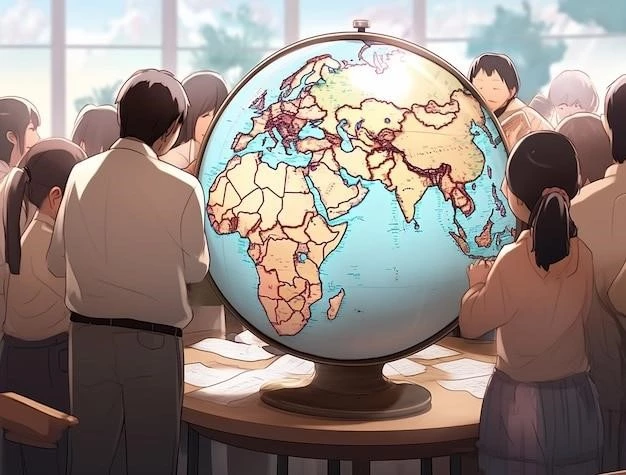The world is shrinking. Not literally, of course, but the way we communicate, trade, and even experience culture has become increasingly interconnected. This is globalization, and its impact on the role of government is profound. I’ve personally witnessed these shifts, both in my own community and through my travels. Gone are the days when governments could operate in isolation, focused solely on domestic issues. Today, the line between domestic and international is blurred, demanding a new understanding of what government should do.

My Experience with Globalization’s Impact
My hometown used to be dominated by local businesses. Now, multinational corporations have a strong presence, and our local economy is intertwined with global markets. When a trade war erupted a few years ago, I saw firsthand how global events could impact local jobs and livelihoods. This experience highlighted for me the complex relationship between globalization and the role of government.

Navigating the Challenges of a Globalized World
Globalization presents a unique set of challenges for governments. Here are a few key issues I’ve observed:
- Economic Competitiveness: In a globalized market, countries are constantly vying for investment and economic advantage. I’ve seen how governments grapple with balancing the need to attract foreign investment while also protecting domestic industries and workers.
- Regulation in a Borderless World: The internet and digital technologies have made it increasingly difficult to regulate businesses and information flows. I’ve followed debates about data privacy and cybersecurity, realizing that these are no longer just national issues. They require international cooperation and new regulatory frameworks.
- Sovereignty and Global Governance: With increased interconnectedness comes the need for global cooperation on issues like climate change, pandemics, and international security. I’ve witnessed the tension between maintaining national sovereignty and the necessity of collaborating with other nations to address these shared challenges.
The Evolving Purpose of Government
So, what should the purpose of government be in this globalized world? Based on my observations and experiences, I believe it boils down to these key areas:
1. Fostering a Competitive and Fair Economy
Governments must create an environment where businesses can thrive in the global marketplace. This means investing in education and infrastructure, promoting innovation, and ensuring a level playing field for businesses. However, it’s not just about economic growth. Governments must also prioritize policies that protect workers’ rights, promote fair trade practices, and address income inequality. The goal should be sustainable and inclusive growth that benefits all citizens.
2. Protecting Citizens in a Globalized World
From cybersecurity threats to pandemics, the challenges facing governments today often transcend national borders. Governments must adapt to this new reality by strengthening international cooperation, investing in global health security, and developing comprehensive strategies to combat transnational threats like terrorism and cybercrime. Protecting citizens in a globalized world requires a proactive and collaborative approach.
3. Embracing Global Engagement and Cooperation
No nation can solve global challenges alone. Climate change, poverty, and conflict require international cooperation and a commitment to multilateralism. Governments must actively participate in global forums, negotiate international agreements, and work collaboratively with other nations to address shared challenges. This requires strong diplomatic efforts, a willingness to compromise, and a recognition that global engagement is in the national interest.
4. Preserving National Identity and Values
Globalization has led to increased cultural exchange, which can be enriching. However, it also raises concerns about the erosion of national identity and cultural values. I believe governments have a role to play in preserving and promoting their nation’s cultural heritage, language, and traditions. This should not be about isolationism, but rather about celebrating diversity within a globalized world and ensuring that cultural exchange is a two-way street.
The Future of Government in a Globalized World
The role of government is evolving rapidly in response to the challenges and opportunities of globalization. The governments that succeed in this new landscape will be those that embrace adaptability, prioritize international cooperation, and remain committed to serving the needs of their citizens in an increasingly complex and interconnected world. It’s a future filled with both challenges and potential, and I’m eager to see how governments will continue to adapt and evolve.










